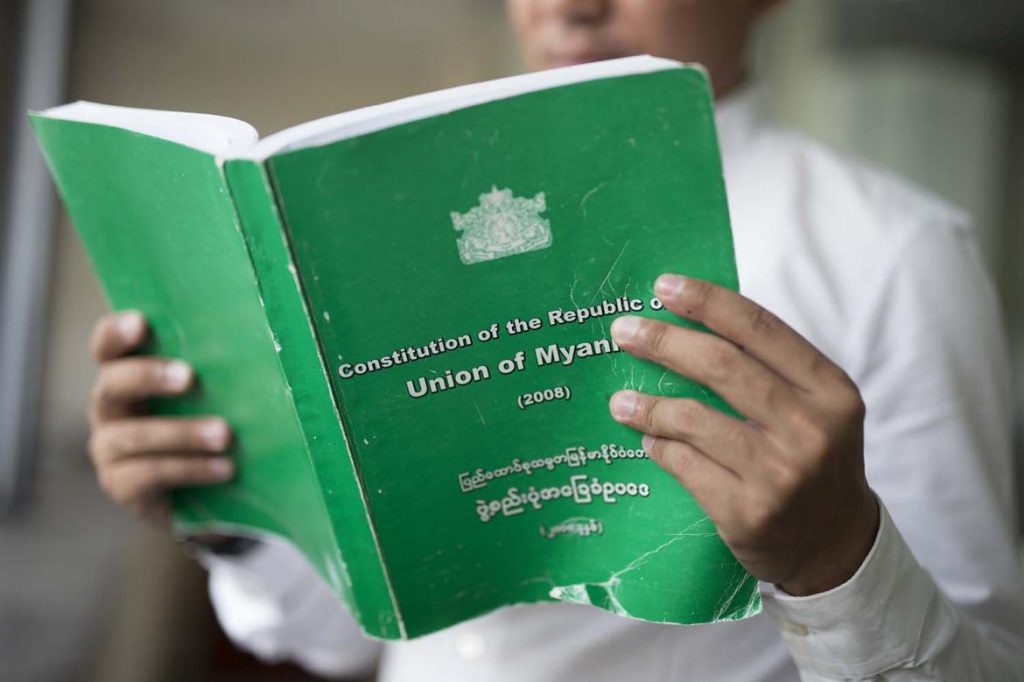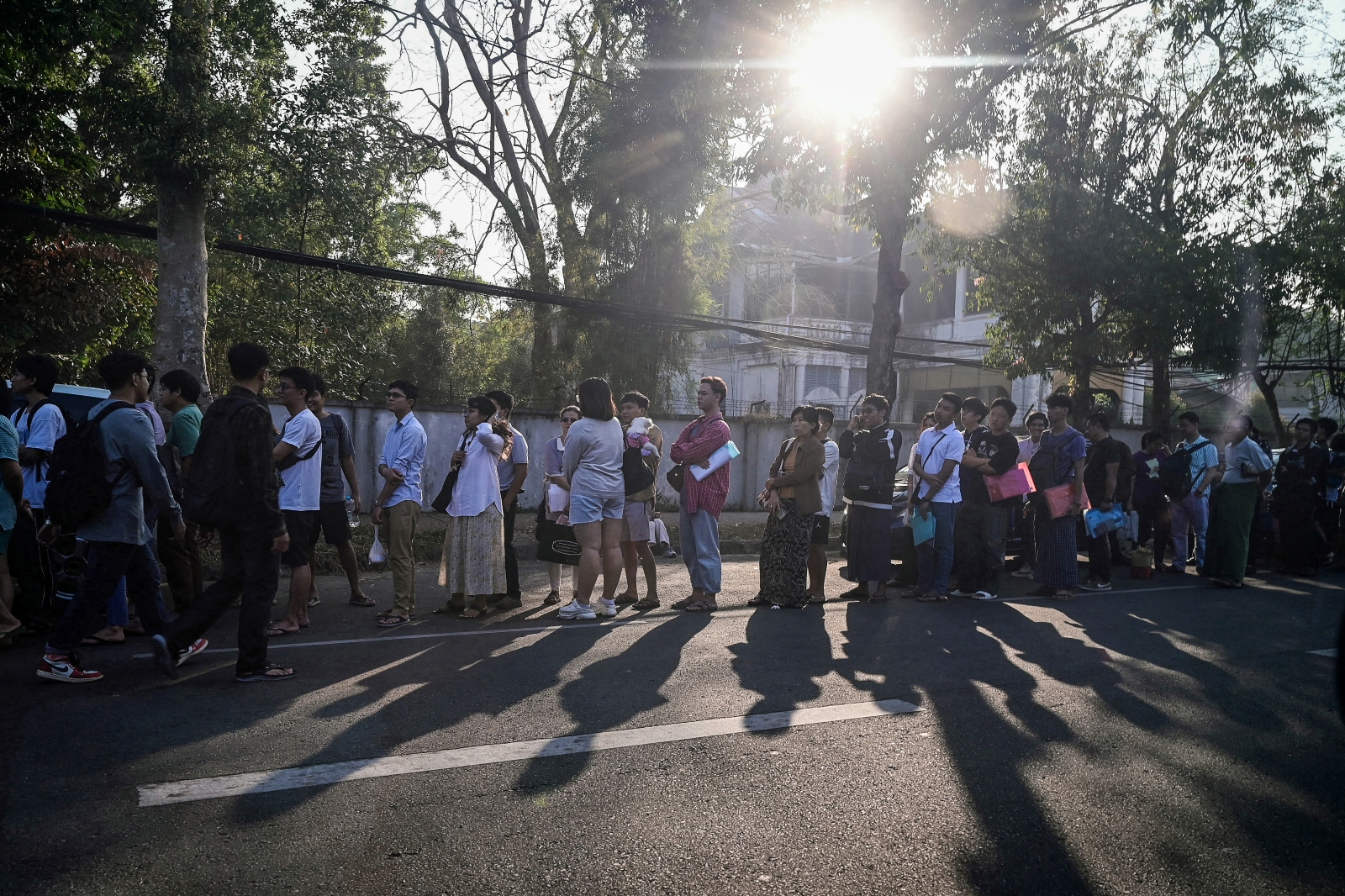A new report has said that Schedule Two of the 2008 constitution is where the “big debates” about Myanmar’s future converge, and that the section is key to opening discussions about amending the controversial charter.
By MRATT KYAW THU | FRONTIER
SCHEDULE TWO of the 2008 Constitution is at the heart of the “conversation” over Myanmar’s political future, says a research paper released in Yangon.
The paper, Schedule Two of the 2008 Constitution: Avenues for reform and decentralization and steps towards a federal system, was written by freelance researcher Ma Tinzar Htun and independent analyst Mr Mael Raynaud, and published by Germany’s Konrad Adenauer Stiftung.
The paper says the issues of democracy, federalism and the role of the military cannot be separated, and together form the basis of modern Myanmar politics.
It notes that ethnic nationality groups spent the last two decades of military rule, after the emergence of the democracy movement in 1988, calling for a “tripartite dialogue” among the National League for Democracy, the military and themselves.
Support more independent journalism like this. Sign up to be a Frontier member.
“It is no coincidence that these were also the decades when the military was drafting the 2008 Constitution,” it says.
However, the conversations about democratisation and federalism taking place in two separate processes contradict the idea of a tripartite dialogue, the report said.
“It is the firm belief of the authors, and virtually everyone they interviewed, that the political process and the peace process are one and the same: the process through which Myanmar’s political future is being built,” the paper says.
“In this context, although the big picture can be described as a conversation about Myanmar’s future among the military, the democracy forces (led by the NLD, probably for many years to come) and ethnic nationalities, it is possible to single out the section in the 2008 Constitution that epitomizes this conversation.
“It is Schedule Two, which details the powers of the state and regional parliaments and therefore, indirectly, the powers of the state and regional executives tasked with implementing the laws approved by those parliaments.”
Schedule Two “is where the big debates about Myanmar’s future converge,” says the paper.
Speaking at the event’s launch, in Yangon on May 3, Raynaud said opinions were sought only opinion from people they considered experts on decentralisation or federalism.
“We have found to the much more open minded that they thought it would be,” he said. “They all agreed that decentralization is needed. They said, ‘We cannot do our job if every decision is made in Nay Pyi Taw.’”
A primary finding was that the peace process and the political process “overlap precisely on issues related to amending Schedule Two, providing a perfect opportunity to move the two processes closer to each other in what would be a much needed and widely desired political dialogue about the future of Myanmar”.
Other primary findings were that there was a consensus on amending the constitution, “with special attention given to Schedule Two”.
The NLD government was committed to this objective and the military may be ready to accept such amendments, the paper says.
It also recommended that the process should be gradual and develop through several rounds of constitutional amendments to move Myanmar closer to a federal system.
It said actors in the peace process need to take a keener interest in the political process, regardless of whether they participate in elections, and actors in the political process need to take a keener interest in the peace process and become integrated into it, moves that would make the peace process more inclusive.
The paper says achieving these objectives will require change at four levels.
At the political level, a consensus is needed among the military, the democracy movement and ethnic nationalities.
At the technical level, decentralisation will require constitutional, legal, fiscal and administrative changes according to the political consensus so that the state can function effectively and citizens feel represented and protected by it and have a sense of ownership.
At the capacity level, much needs to be done to ensure that those in charge of implementing these decisions have the ability to perform their tasks competently.
“And, perhaps most importantly, the mindset of all stakeholders will need to change for such a consensus to emerge. This will also involve change in the relationship between the center and the periphery, and changes in sharing and delegating power, as it becomes less personalized,” the paper says.
The authors acknowledge that the paper raises “huge” challenges.
“Decentralization, and later, federalism, will be the work of a lifetime, and lasting solutions will probably be found over several generations,” they write. “The people of Myanmar have no alternative than to face and, collectively, overcome these challenges.”
U Maw Htun Aung, Myanmar country manager for Natural Resource Government Institute, said that the report is useful because many people are discussing federalism and constitutional reform, but “nobody is preparing for implementation”.







